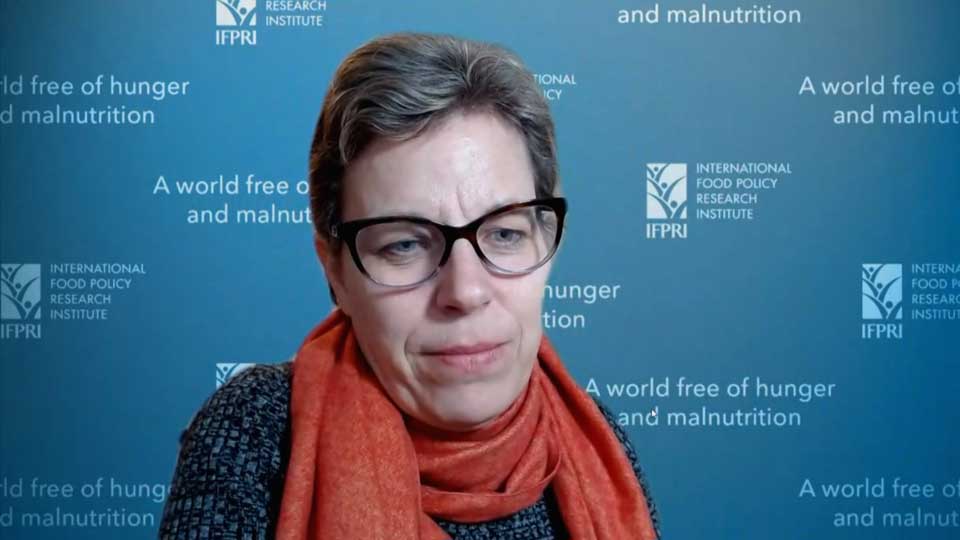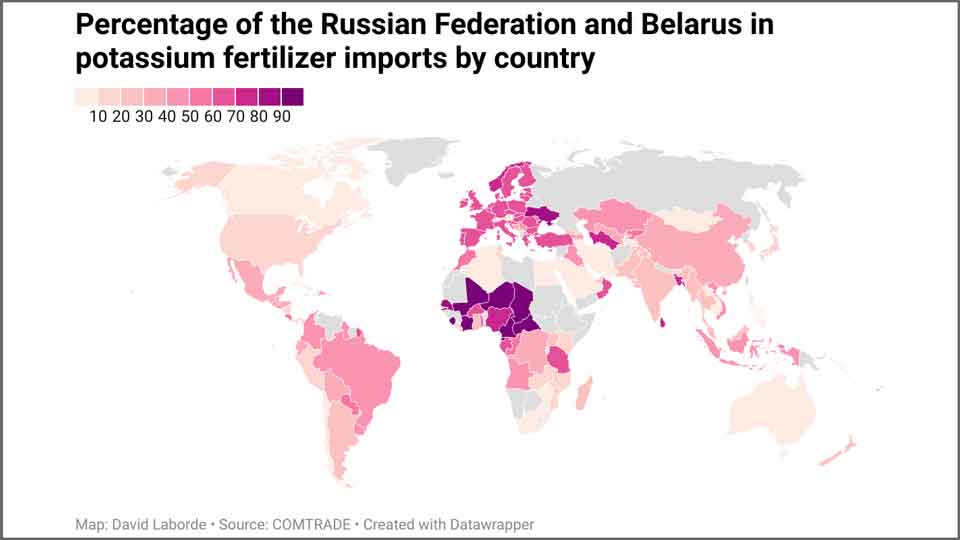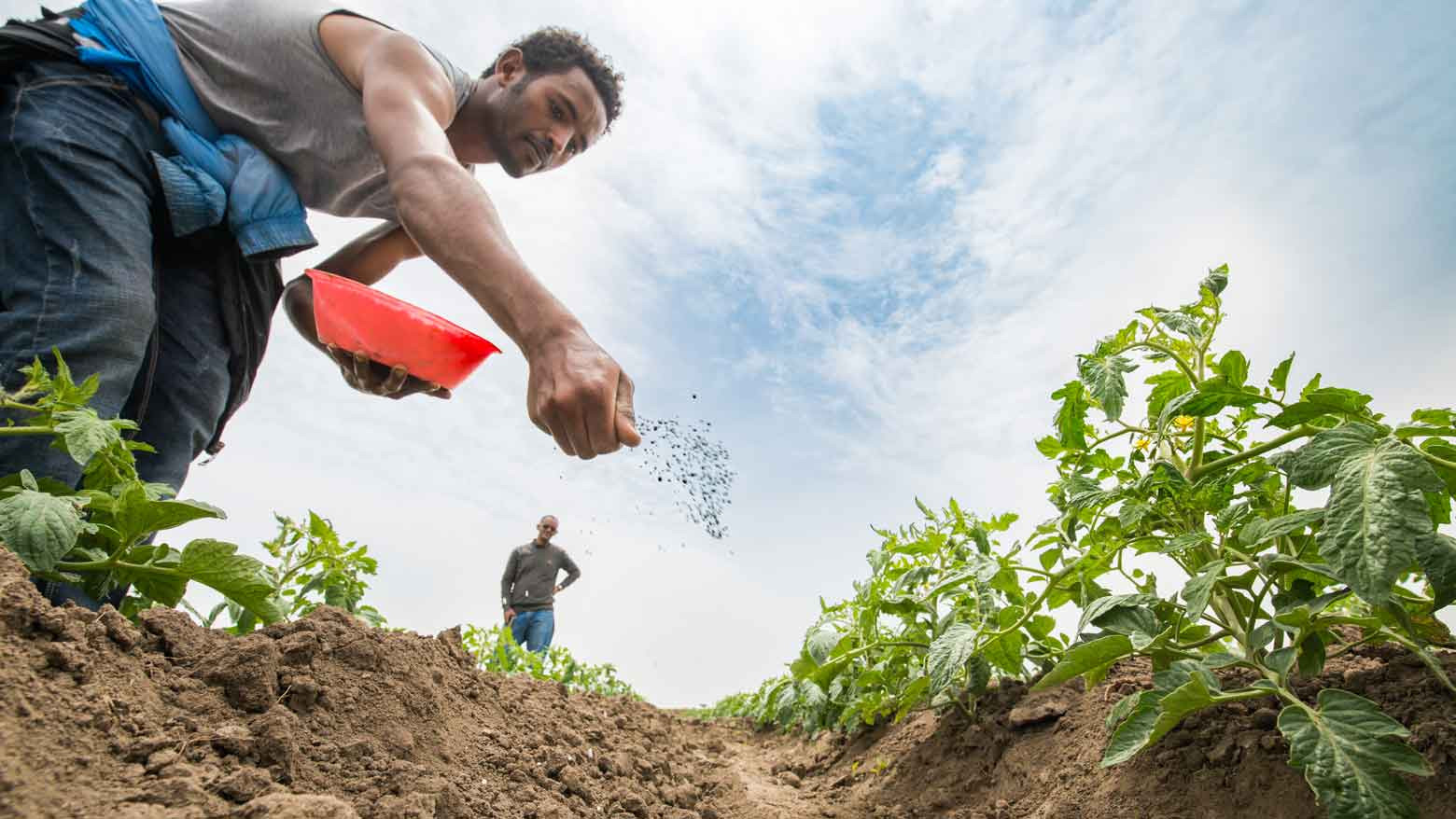Russia and close ally Belarus are major exporters of fertilizer, but sanctions on both nations have choked global supply chains and doubled prices. United Nations Secretary-General Antonio Guterres says the problem – coupled with skyrocketing fuel and grain costs – could expose many people across the world to the risk of serious food shortages.
Charlotte Hebebrand of the US-based International Food Policy Research Institute says the Russian invasion exacerbated an already bad situation.
Natural gas, a key component of nitrogen-based fertilizers, has been seeing sharp price increases, and China has suspended exports of fertilizer ingredients, adding to the global supply shortage.
"The invasion of Ukraine followed what had already been a long process of increasing fertilizer prices," she says. "So it was an added factor that hit the market."
"The fact is that a combination of sanctions and export restrictions imposed on and by Russia and Belarus, basically have taken all the fertilizers that are usually traded from those countries off the market. Countries which had high import dependence on Russian and Belarusian fertilizer have been hit badly, and that has simply shrunk the availability of fertilizers."
She says food and fertilizer prices have often been cyclical. What is different from the past is that it comes at a time when the pandemic is devastating global economies, with countries spending tremendous amounts to recover.

She warns that the impact will be particularly serious for those countries most vulnerable to or already suffering from food shortages.
"Perhaps there will be opportunities to exempt fertilizers from those sanctions. We understand the political intentions behind those sanctions, but the reality is they have very negative impacts on other countries – that is something that needs to be looked at."
Nations urged to step up
Sanctions have sent prices of the three main macronutrients that make up chemical fertilizer—nitrogen, potassium, and phosphate—soaring. Of the three, potassium and phosphate are especially susceptible to such measures, as they can only be mined in certain countries. As a result, the global agricultural market has long been dependent on a few producers, including Russia and Belarus.

Hebebrand says governments must break free of this reliance and find long-term solutions. One possible answer is to ramp up domestic production. Canada is doing just that with potassium. Meanwhile, India is taking steps to become self-sufficient in nitrogen fertilizer, while Brunei and Nigeria are building plants to raise production capacities.
Hebebrand is also calling for the use of so-called "specialty fertilizers." These varieties are produced mostly for non-farming uses, such as for homes and gardens. It also includes commercial fertilizers used for research or experimental purposes.
She believes the use of alternative fertilizers, combined with more efficient practice generally, could help ease the effects of the current crisis.
"Oftentimes, fertilizers are applied in a not very crop- or site-specific manner, so there's a lot of waste," she says.
Watch Video 03:18
Innovations offer hope
Hebebrand says trials in the field of plant genetics offer the possibility of modifying crops to have the ability to harness nitrogen from the air, instead of from fertilizer.
She also says experiments are underway to produce ammonia using a water-based electrolysis process. Ammonia is a key feedstock for producing phosphate and nitrogen fertilizer.
"We may see electrolysis powered by renewable energy, especially if natural gas prices stay very high," she says. "That could present an important alternative."
Still, she knows the clock is ticking fast. As Russia's invasion rages on, the next planting season in many parts of the world grows ever closer. Unless farmers are guaranteed the fertilizer they need, then high food prices are here to stay.
"High fertilizer prices risk turning the food security concerns of today into a longer-term problem," she says. "If fertilizer is unaffordable for the next planting season, you have the prospect of decreased production or yields in the future that will risk exacerbating the high food prices."

